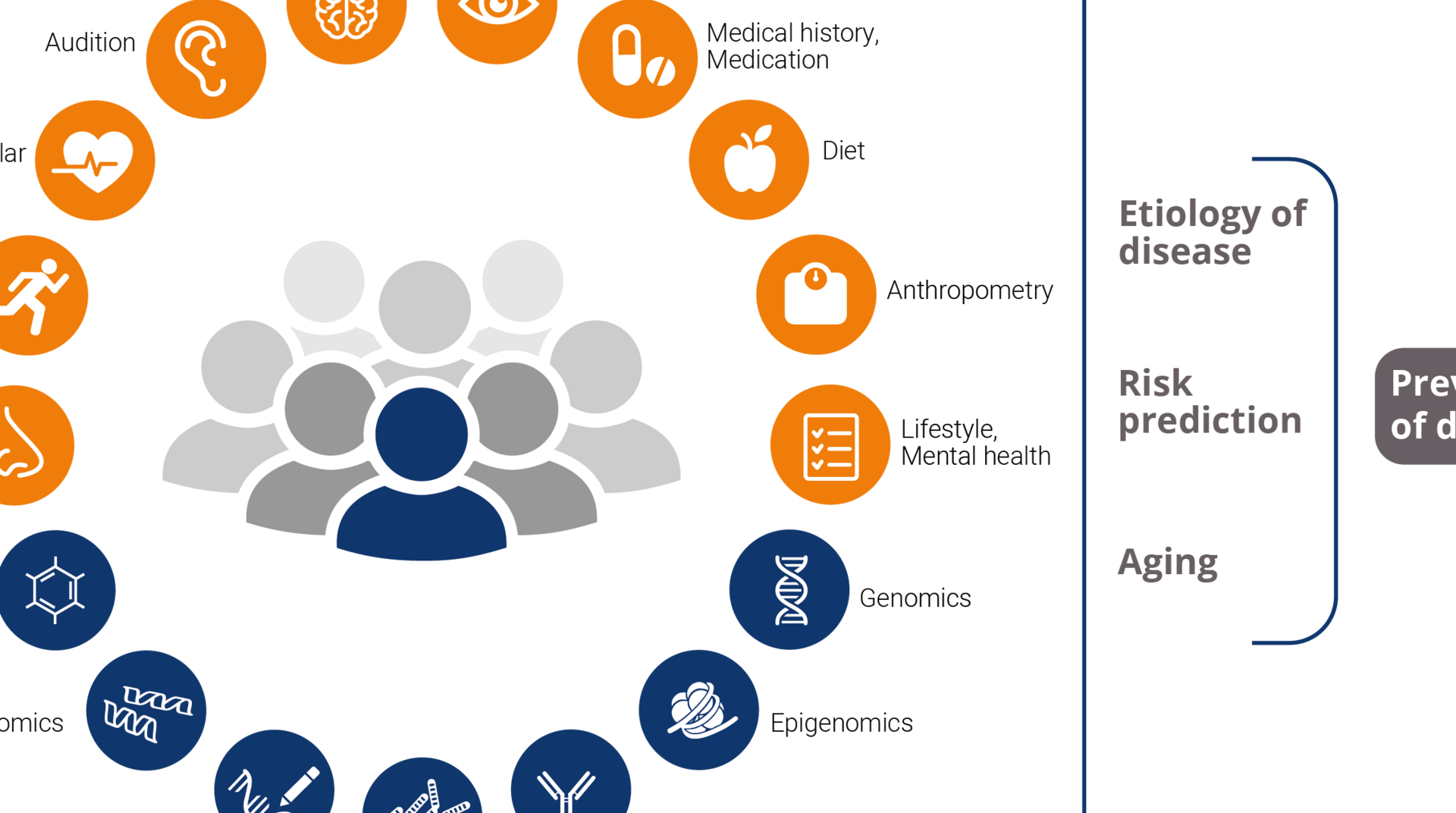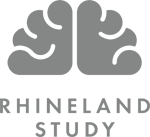Areas of investigation | research focus
We perform quantitative empirical research with the aim of understanding what determines people’s health across their life span. Specifically, we focus on the identification of causes and causal disease mechanisms that can be targeted to prevent or delay the onset of clinical disease (etiologic research). We also aim to identify biomarkers and develop methods to assess disease risk. Our goal is to aid the development of prevention strategies for neurodegenerative and other age-related diseases, most notably dementia.
Most age-related diseases occur as the cumulative resultant of varying combinations of protective, restorative, and detrimental factors. We are interested in the effects of the exposome as well as the (epi)genome on health. To derive imaging as well as blood-based biomarkers of (healthy) aging and to find people at risk, we use advanced brain imaging and leverage high-dimensional multi-omic data. In addition, we are interested in the relation between sensory systems and brain structure and function, and conduct pharmacoepidemiologic and pharmacogenomic research.
The Rhineland Study
To understand what determines people's health one has to study people. Our research builds to a large extend on the Rhineland Study, a population-based prospective cohort study. In the Rhineland Study, we emphasize deep phenotyping and incorporate novel technologies and insights from basic research early on in our studies.

Core data collection includes behavioral assessments, cardiovascular measures, sensory systems assessments, as well as questions on medical history, medication intake, life style, nutrition and mental health. Besides detailed clinical data, we also collect wide-ranging omics data, including (epi-)genomic arrays, RNA-Seq, metabolomics, lipidomics, gut microbiome analyses and immune profiles. In addition, all eligible participants of the Rhineland Study undergo an advanced 1h MRI protocol. To develop and use innovative methods on our high-dimensional and multimodal data, we collaborate with computational data scientists. The cohort currently comprises more than 10,000 participants – but up to 20,000 participants will be studied in total.
- Effects of diet and other life style factors on metabolic and brain health and the possible underlying mechanisms and association of gut microbiome composition with brain outcomes (this project was supported by the Competence Cluster DietBB)
- Role of infections, (neuro-)inflammation, and the immune status in aging and disease development (this project is supported by the Excellence Cluster Immunosensation2)
- Effects of climate change on health, and the association between air temperature, immune markers and metabolic profiles in the general population. We also assess antibody response against infectious agents associated with rising temperatures (e.g., Lyme borreliosis; this project was supported by the Helmholtz Climate Initiative)
- Polypharmacy, inappropriate medication, and self-reported medication use in the general population
- The relationship of olfaction, hearing, and eye movement with brain structure and function
- Effects of stress on cognitive performance and brain outcomes across the life span, and its interaction with immun activation (This project is, among others, supported by the AFI)
- Investigating the determinants and markers of (healthy) aging by using multi-omics approaches. Currently, we are focusing on the integrative analysis of different molecular layers (e.g., genomics, epigenomics, transcriptomics, metabolomics, microbiomics, and proteomics) with brain imaging phenotypes, vascular functions, adiposity measurements, and neurodegenerative biomarkers
- Relation between changes associated with the hypothalamus and decline in cognitive function in Alzheimer’s disease (this project was supported by a grant to Ahmad Aziz from the Alzheimer’s Association)
- Age-related reorganization of the brain and its association with cognitive performance at the population level
- Development of new computational data science tools and novel methods leveraging big data and multi-omics
- Identification and validation of (retinal and brain) imaging markers as well as blood-based biomarkers
- Identification of cognitive measures that are particularly sensitive to genetic susceptibility for certain diseases, e.g., Alzheimer’s disease or schizophrenia
- Epigenetic variants associated with small vessel disease using full-resolution epigenome profiling in regulatory elements


